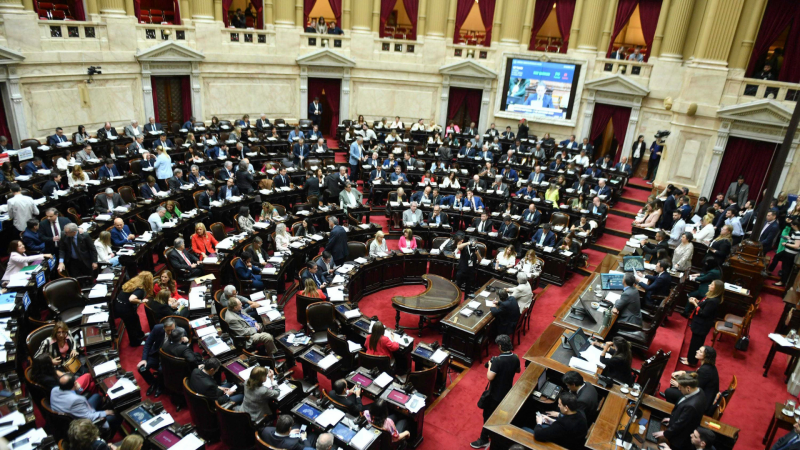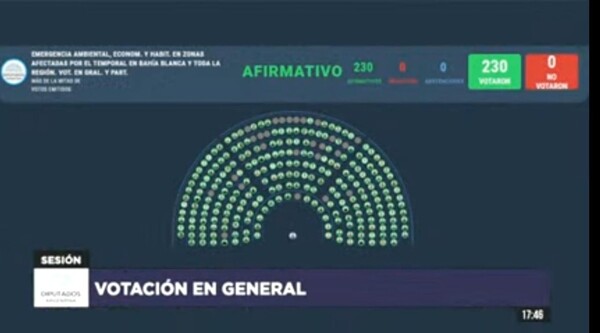
The session of Deputies this afternoon was marked by tensions. The deputy of Encuentro Federal, Agost Carreño, proposed a work plan that was ultimately approved to organize the session. However, the vote to request political judgment against the executive power could not be held, as there was no quorum in the chamber, which led to the suspension of the session as established by the regulations.
During the day, incidents occurred that culminated in physical violence between two deputies. The session had begun with controversies, as the PRO and the ruling party rejected the inclusion of a project from the Left Front about Bahía Blanca. After the work plan was exhausted, only privilege matters were left to discuss.
In an unexpected moment, an attempt was made to introduce a departure from the regulations to repeal the emergency powers of the executive branch, which caused disturbances in the chamber. In response to this situation, the presidency requested a recess that was not complied with. Finally, a project to declare environmental, economic, and housing emergencies in Bahía Blanca was unanimously passed with provisional approval.
The tension in the chamber was reflected in the lack of quorum to discuss different projects, including the motion to regularize the Commission of Political Judgment. This caused a confrontation between deputies from different sectors, culminating in the suspension of the session by the decision of the president of the Chamber. Later, outside the Congress, there were moments of tension due to protests by retirees, fans, and unions.
Amid angry demands and struggles between deputies, the session ended without agreement. Despite the presidency's attempts to maintain order, the lack of consensus led to the interruption of the voting. Finally, a statement was issued explaining what happened during the session and taking a stance on the matter, while protests continued around the Congress.













